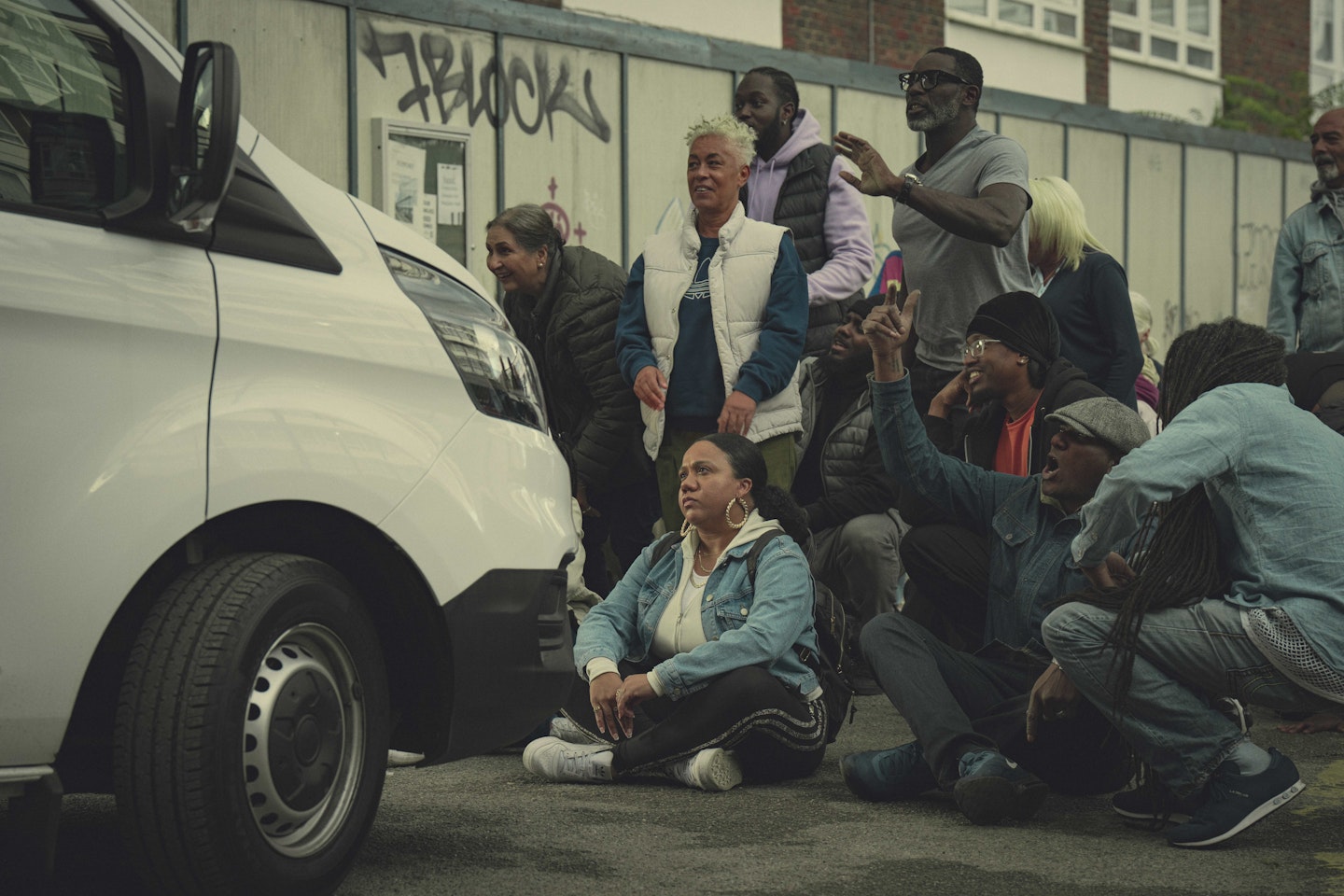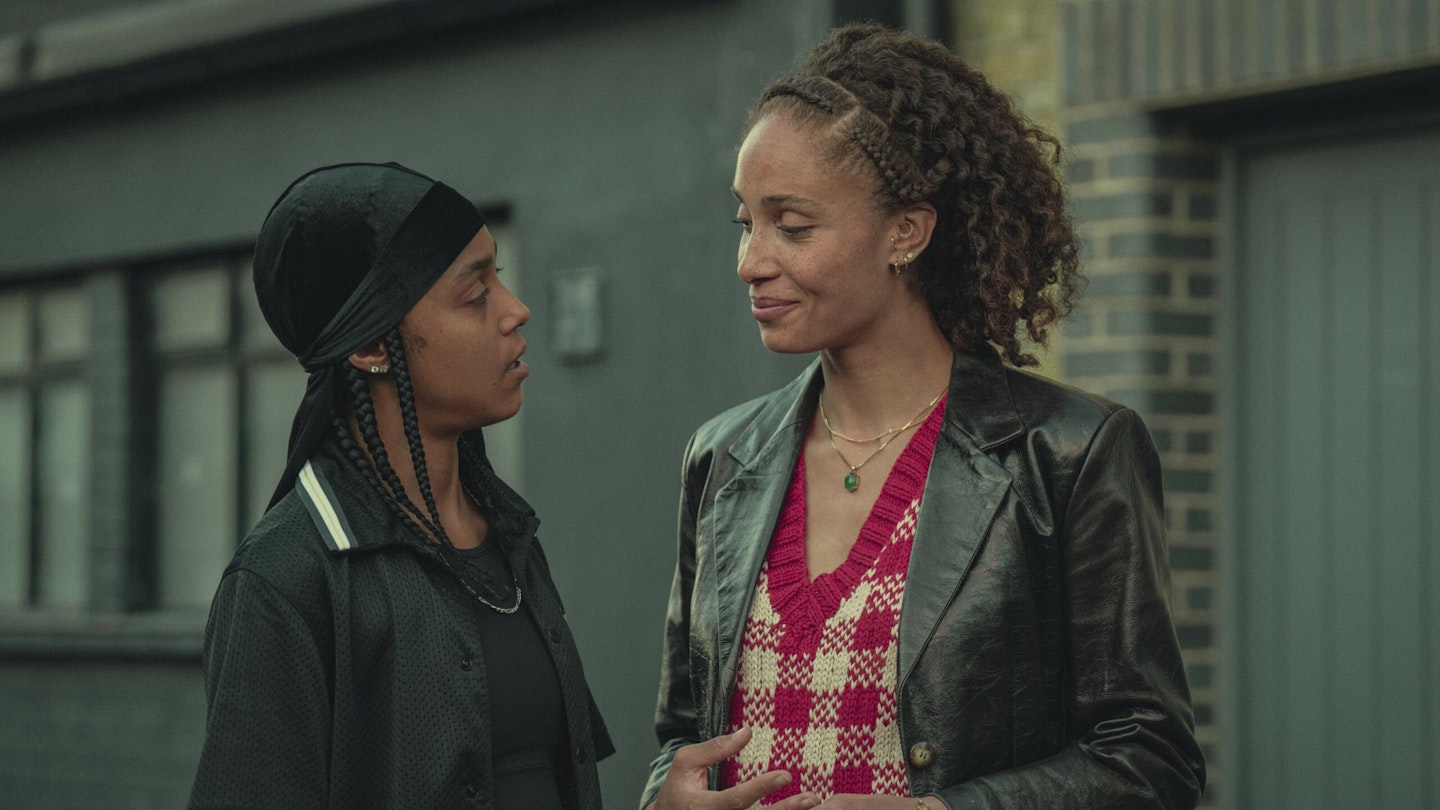*BE AWARE, THE THEMES OF TOP BOY SEASON THREE ARE DISCUSSED AHEAD*
It’s hard to think of series that’s done more for British TV than Top Boy. Having made its debut on Channel 4 in 2011 and running for two seasons before Netflix revived it for a further three, the gritty drama follows the drug gangs of London’s fictional Summerhouse estate in Hackney with unflinching authenticity of inner-city life.
The characters have been the viewers’ window into the ways poverty can cause crime and the realities of social-housing life, even their street lingo inevitably goes viral (a bit of 'food', anyone?). Across the pond, US viewers have lapped up every word, integrating London lingo into their everyday lives. Critics have praised the show over the years - even hailing it as British TV’s equivalent of The Wire - with Top Boy easily becoming the blueprint for British dramas, hailed as changing Black British culture forever.
Sadly, this season of Top Boy will be the last, no matter how much Top Boy fans protest - such fans include Canadian rapper Drake, who campaigned for the Netflix revival and now also serves as an executive producer on the show.
The final season is once again headed by acting veterans Ashley Walters and Kane "Kano" Robinson playing Dushane and Sully respectively. The key to the shows success is the representation and the diverse talent on and off-screen. Over the years the series has nurtured Britain's brightest stars such as Letitia Wright, Michaela Coeland Micheal Ward. And, crucially for disenfranchised audiences, it has reinforced the link between youth culture, music and mainstream television: renowned artists such as Kano, Little Simz and Dave are all featured.
This commitment to diverse casting has had a game changing impact on the industry. It not only provided opportunities for once unknown Black actors to showcase their skills, but also shattered stereotypes and challenged preconceived notions about who gets to tell stories on screen. Top Boy has given voice to an often voiceless community and allowed them to shine through.
As we delve into the closing episodes, we must applaud the multitude of themes the show has spotlighted; domestic violence, the Black queer community, immigration, crime and more. Top Boy is more than just a story; it's a penetrating examination of the intricate web of social issues that weave through the lives of its characters.

Throughout the series, viewers have praised the show's portrayal of being Black and queer in the UK through lead character Jaq (played by BAFTA nominated actress, Jasmine Jobson.) Being Black British and a masculine presenting lesbian like Jaq, is a nuanced identity that we rarely see in film and television. More often than not, the industry invalidates queer experiences as a whole by overlooking them. TV is a mediums many people look towards to feel seen, and through Jobson's portrayal many people could relate to her character for the first time in their lives.
As viewers we've watched Jaq grapple with homophobia and discrimination - providing an authentic an insight into how young, queer Black woman navigate the world – and the devastating challenges they face. We've also followed the gut-wrenching storyline of abuse and manipulation through Jaq's heavily pregnant sister Lauryn ( portrayed by BAFTA-nominated actress, Saffron Hocking.) During Season two, we went on a chilling cat-and-mouse chase as she tried to escape the clutches of Curtis, her boyfriend and father to her baby.
Lauryn's story becomes even more tragic in the final season, and it truly highlights the realities of living through domestic abuse and coercive control. Although she escaped her abuser and is reunited with her family, she still lives with the crippling pain of that experience.
We must applaud the multitude of themes the show has spotlighted; from exploring domestic violence, spotlighting the Black queer community, immigration, crime and more.
Domestic abuse organisation Refuge also praised Top Boy for tackling such an important theme, and shining a light on the layers of domestic abuse. Ruth Davison, CEO of Refuge told The Metro, 'It is important that popular culture reflects reality. Accurate portrayals of some of the dynamics of domestic abuse in films and TV are really helpful in raising awareness of the issue and as a way for people to recognise abusive behaviour in their partners. Lauryn’s story shows that domestic abuse is not only physical. She experiences gaslighting, stalking and coercive control – where an abuser uses a pattern of behaviour over time to exert power and control over a partner.'
Furthermore the show is visual proof of how gentrification can lead to segregation, pushing those already suffering from the housing crisis further down the ladder. Racist stop-and-search policies, poverty, deportation threats, mental illness, overcrowding in social housing and benefit sanctions are all topics that serve as inspiration for the drama, which seeks to increase our understanding, rather than harshen our judgement, of poverty and gang culture.
In the final season, immigration and deportation take centre stage. As one of the Summerhouse estate members is threatened with wrongful deportation back to Rwanda, the community band together in a protest to stop it. Their protest is a success and once again shows the importance of community. This euphoric scene sees art imitate reality as the nation has seen first hand the Home Office's increased hostility towards immigrants.

If there is a criticism that attempts to plague the success of Top Boy, it is that it unhelpfully perpetuates stereotypes about Black people, and glamourises gangs and violence. But as a viewer, if you're really paying attention - the show does anything but glamorise these situations, and the final season only highlights this further.
During episode 4 of the final season, called 'The Food Is Killing Us' we watch Jaq grapple with her choices. As her life starts to unravel following tragic family circumstances, she finally starts to see how living a life of crime and dealing drugs only leads to an ongoing cycle of death and destruction.
Top boy has given voice to an often voiceless community and allowed them to shine through.
If anything, the Netflix drama exposes the devastating impact of gang culture on individuals and communities. It's very clear from the final season that there’s only so far you can go. We've watched characters either end up in prison or dead - every 'top boy' has to come to an end at some point. The series paints a bleak picture of the choices that young people face when limited opportunities force them into a world where survival often depends on criminal enterprises.
While Top Boy is about to take its last bow, its legacy is clear. The show has moulded many young stars, but more importantly it has also opened up many important conversations about marginalised communities on a global scale - and reminded the entertainment industry about the importance of authenticity on-screen.
For years there have been calls for more diverse representation on and off-camera in the UK, and while we are not completely there yet, for many, Top Boy has paved the way. The show demonstrated that narratives centered on Black characters can be universal and appealing to a wide range of audiences. That’s why as viewers we shouldn't be sad about Top Boy closing it's curtains, because it’s opened up the doors for so much more.
Top Boy's final season premieres globally on Netflix 7 September 2023
